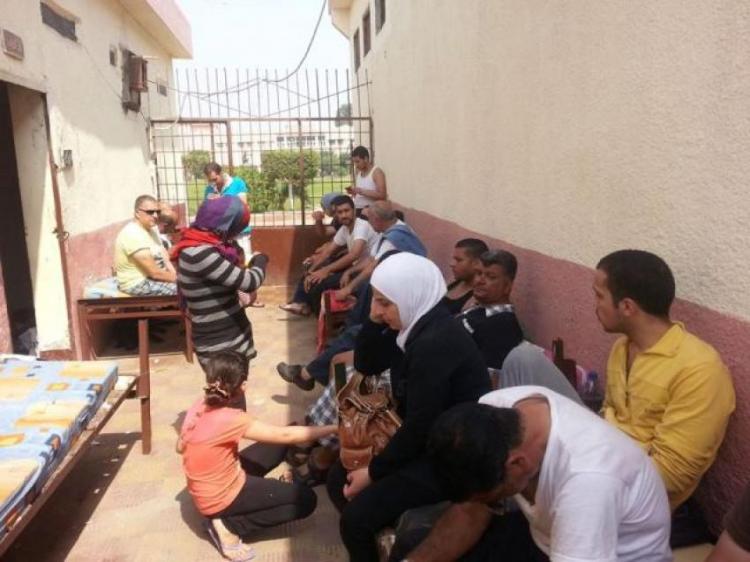Human rights report monitors Syrian refugees’ situation in Egypt during coronavirus
CAIRO, Egypt (North Press) – The Egyptian Commission for Rights and Freedoms addressed the situation of Syrian refugees in Egypt in light of the coronavirus pandemic, representing an explanation of the situation of Syrians in light of the crisis and its repercussions. The report also suggested seven major recommendations whose application would contribute to reducing the burden on the Syrians.
The recent study of the commission monitored the biggest difficulties refugees are facing during the pandemic, on the background of many complaints and reports received by the commission. Some problems are persistent and prevalent before the epidemic, but they were exacerbated after the emergence of the pandemic, along with other problems which emerged after precautionary measures taken by the country to confront and contain the epidemic.
The study summarized the problems and difficulties facing the Syrians in six main problems (monthly rent, food, childcare, medical treatment, document costs, and detention of refugees).
Regarding food, the commission noticed that Egypt has continuously reduced the number of beneficiaries of food aid, justifying this by the lack of funding for Syrian support programs. Also, the employees of the operating bodies are not sufficiently available to assist cases or to open files of families with dire need to study them or to determine their needs due to following the rules of physical separation and working from home.
The report reviewed the economic effects of the pandemic on refugees, as most of their income sources ceased or were interrupted, which in turn affected their situation regarding housing, food, and the provision of minimum needs for refugee families in light of the lack of humanitarian aid and high prices in conjunction with the cessation of irregular work that was one of the most important sources of income for most of them.
The report also identified other problems such as families caring for children and how to manage this burden after the study stopped weeks ago, and the crises of treatment, health care, and infection prevention aid and the role of the country in helping refugees on an equal basis with Egyptians to control the spread of the virus. This is in addition to the problem of renewing residency, the issuance of residence documents and identity and travel documents and their burdens, in addition to the crisis of refugees in detention centers and highlighting their suffering from bad and dangerous situations without specifying their number.
The study summarized five recommendations to confront the problems of Syrian refugees in Egypt, the first of which is the intensification of the commission relief role towards refugees, and the initiative to activate an emergency working group, with the development of advocacy policies aimed at attracting the necessary funding to advance aid programs, in addition to the release of refugees held in all detention centers.
The study also recommended the necessity of extending the validity of work permits in order to reduce the burdens on Syrians while providing the space and support to civil society organizations to implement refugee support plans and programs.
The study relied on personal interviews with approximately 50% of Syrians residing in Egypt to ask them about the basic concerns and necessary protections before and after the spread of the epidemic. The researchers also relied on phone calls to conduct these interviews to ask about the situation of families and households before and after the epidemic through a number of points that represent the basic and necessary aspects of their lives.
(Additional report by Mohamed Abu Zaid from Egypt, editing by Lucas Chapman)

